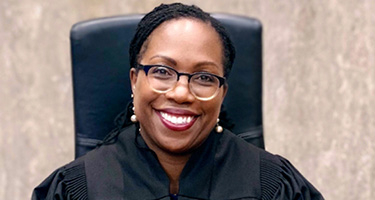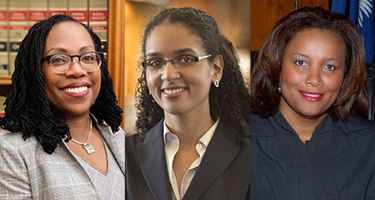U.S Supreme Court Finds High School Coach's Post-Game Prayers Covered Under First Amendment
Executive Summary: The recent Supreme Court decision in Kennedy v. Bremerton School District, 142 S. Ct. 2407 (June 27, 2022), is the latest to promote free exercise of speech and religion over all other competing interests. In its June 27, 2022 opinion, the Court’s conservative majority held that the Free Exercise and Free Speech clauses of the First Amendment protect an individual engaging in personal religious observances from government reprisal, even when he does so on school property at a school-sponsored event. Kennedy held that a coach may pray at the 50-yard line after a high school football game. The decision strays from and overturns prior Supreme Court precedent established in Lemon v. Kurtzman, 403 U.S. 602 (1971), adhering to the separation of church and state, one of the United States’ founding principles.
In Kennedy, Coach Kennedy kneeled in prayer at the end of each game at the 50-yard line and recited prayers of gratitude for “player safety, sportsmanship, and spirited competition.” At first, Kennedy’s midfield prayers were alone, but over the years he was joined by players, the public and even opposing teammates. Once the school district of Bremerton became aware of the practice, it sent Kennedy a letter stating that he was “free to engage in religious activity, including prayer, so long as it did not interfere with job responsibilities,” but prohibited students from joining him. Kennedy sent a letter to school officials explaining that his “sincerely held religious beliefs” obligated him to continue his “post-game personal prayer.” Kennedy was placed on administrative leave for failing to comply with district policies. The school did not rehire him the following the season.
In his lawsuit, Kennedy asserted his right to “act in accordance with his sincerely held religious beliefs,” alleging violations under Title VII and the Free Speech and Free Exercise Clauses of the First Amendment. The District Court denied his request for a preliminary injunction ordering his reinstatement, and the Ninth Circuit affirmed. Both courts held Kennedy was a public employee and, thus, his speech was not protected under the First Amendment. Kennedy’s petition for certiorari to the Supreme Court eventually was granted.
Justice Neil Gorsuch authored the 6-3 decision, rejecting the school district’s argument that allowing Kennedy’s prayers violates the Establishment Clause, which established separation of church and state. In doing so, Kennedy overturned Lemon, established precedent for 50 years. Lemon set forth a three-part test, focusing on religious purpose, religious effect and entanglement between government and religion, or the “endorsement test.” In contrast, Kennedy held that the focus must be on “history and tradition analysis,” which considers what the Founding Fathers would have considered to be a violation of the Establishment Clause. Applying this test, the Kennedy Court held that post-game prayer was not within the scope of Kennedy’s coaching duties, and thus, was private and protected. Because the school district’s policy targeted Kennedy’s speech based on its religious content, it was subject to heightened scrutiny, and, in stark contrast to prior precedent cautioning about the danger of student coercion, the Court held that there was no compelling state interest to restrict Kennedy’s protected conduct. The Court viewed this situation as the government punishing Kennedy for engaging in a personal religious observance, rather than as the government endorsing the religious beliefs of its employees. Kennedy held that “public schools are a place where everyone should learn to tolerate the religious expression of others as part of living in a pluralist society.”
In her dissent Justice Sotomayor, joined by Justices Breyer and Kagan, concluded the majority’s ruling is “misguided” because it “elevates the rights of an individual” who voluntarily accepted public employment over the rights of students, who are compelled to attend school.
Employers’ Bottom Line:
This decision represents an ideological shift in the relationship between church and state, and public entities and their employees. Long-standing precedent established that the state cannot support or promote religious expression by employees, especially in public schools and universities. Thus, public schools and universities could regulate religious-based communication between employees and students. But Kennedy changes this. Now, public schools and universities must ensure policies are neutral and generally applicable to all expression without targeting religious expression specifically. It will be increasingly difficult for school districts that desire to remain neutral or protect students against religious pressures to enforce policies that overly restrict the religious speech and expression of employees. Although it remains to be seen whether Kennedy's holding will be confined to education only, the Supreme Court’s shift represented by Kennedy should make all public employers proceed with caution in employee discipline. Private employers operating in states with statutory mandates incorporating the First Amendment should also review Kennedy to understand its impact.
If you have questions regarding this Alert, please contact the authors, Johanna Zelman, partner in our Hartford and New York offices at jzelman@fordharrison.com and Kadale Lubin, associate in our Atlanta office at klubin@fordharrison.com. Of course, you can also contact the FordHarrison attorney with whom you usually work or any member of FordHarrison’s Education practice group.































